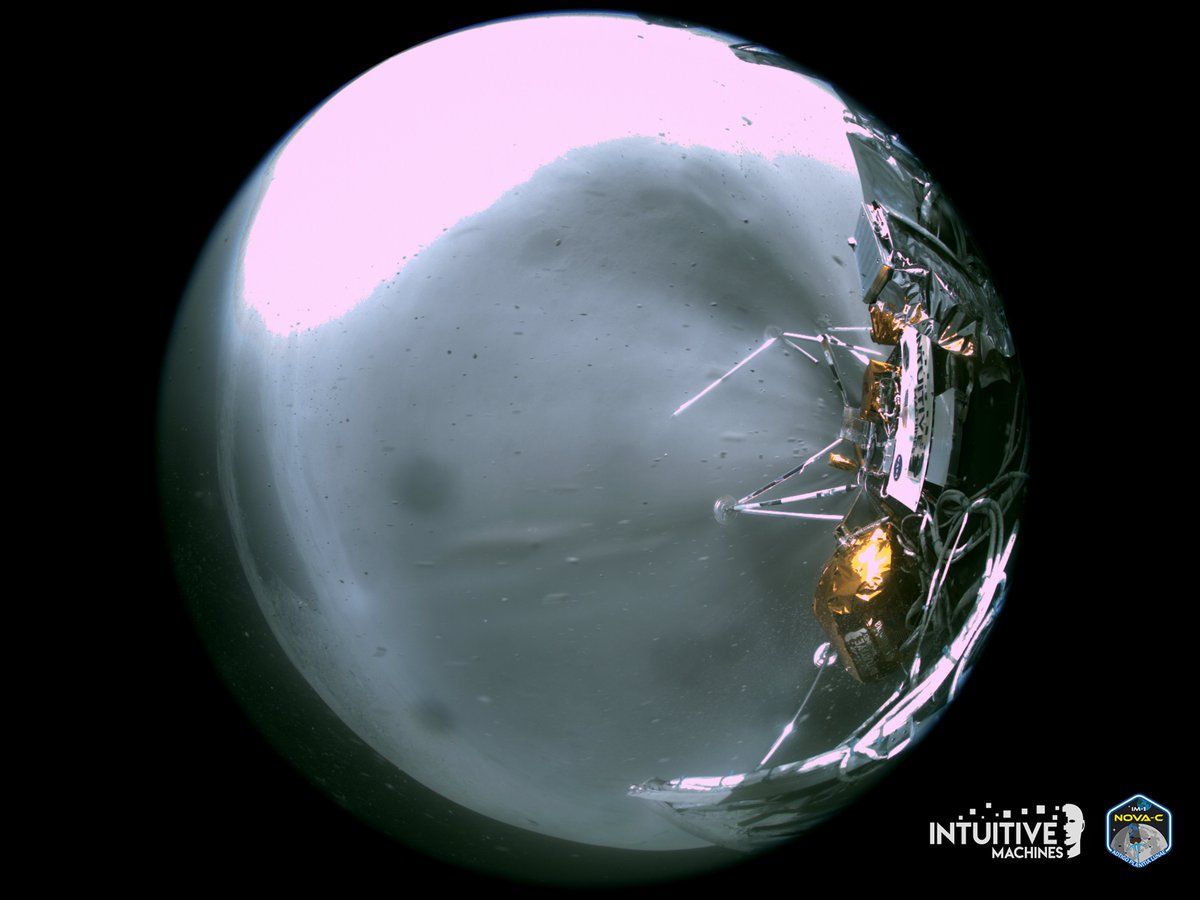Nova-C (Odysseus), the lunar lander that is currently carrying more than 100 Jeff Koons sculptures into space, is expected to lose power and communication with flight control engineers after a botched landing. According to Intuitive Machines, the company that designed it, the craft came down on its side on 22 February, severely impacting its intergalactic performance. This is the first time a nongovernmental space apparatus has accomplished a landing on the moon, despite the obstacles.
Two rangefinder lasers were unable to guide the touchdown due to a variety of glitches and trajectory calculation inaccuracies, including engagement of the lander’s safety switches, which can only be manually disabled. The vessel’s tipped-over position re-oriented Odysseus’s solar panels and antennas, limiting power and preventing contact with engineers on the ground.
In a briefing, the Intuitive Machines chief executive officer Steve Altemus said that the cargo occupying Odysseus’s compromised side is Koons’s “Moon Phases”, a collection consisting of 125 one-inch miniature sculptures. Each sculpture represents a phase of the moon and is dedicated to a different historical figure (Mozart and Leonardo da Vinci feature in the suite). The sculptures are tethered to a collection of Koons NFTs available through Pace Verso, the gallery’s Web3 platform.
The “Moon Phases Project" was initially destined for take-off in July of 2022, and were launched spacewards on a Falcon 9 rocket designed by SpaceX, controversial billionaire Elon Musk’s company, on 14 February, 2024. Koons’ work is officially the first example of fine art on the moon.
“I grew up listening to President Kennedy speak about going to the moon,” Koons told the New York Times before the rocket’s takeoff. “It gave our society a vision and drive that we could believe in ourselves and accomplish things.”
Intuitive Machines will attempt to "wake up" Odysseus in two to three weeks.


